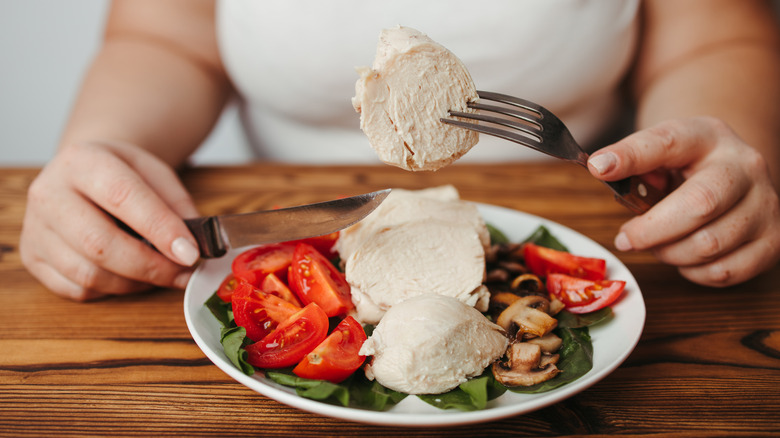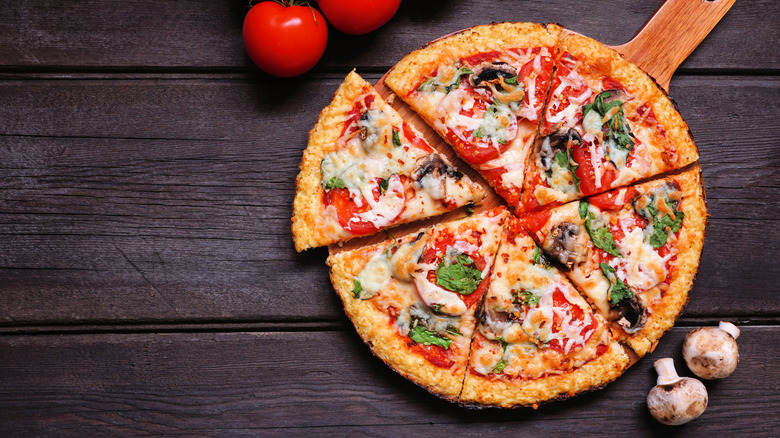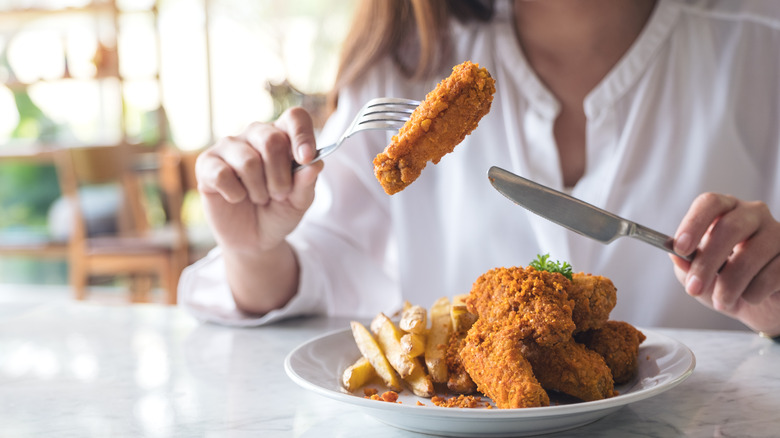Diet Culture Paints Carbs As The Enemy - But The Reality Is You May Not Be Getting Enough
There's nothing new about diet culture's ruthless vendetta against carbs. Carbohydrates are deemed toxic for the body, mind, and soul, but they're really an essential part of a healthy diet. Carbs provide the body with glucose that's then converted into energy, fueling our daily bodily functions. While diet culture will convince you out of eating carb-filled foods, there are a number of reasons why you should eat carbs — and why you might not be getting enough.
Before we jump in, it's important to note that being too conscious of the foods we eat can lead to disordered eating patterns and restrictive thoughts about food. While you should aim to incorporate healthy foods into your daily routine, our bodies were not made to be a perfectly healthy utopia. Restructuring the ways in which we think about and expose ourselves to diet culture can help us create a more delicious and sustainable diet.
How many carbs should you eat in a day?
According to registered dietician Whitney Trotter, you can incorporate a few carbs into all of your meals. "As a general rule, I try to aim for at least three to four servings of carbohydrates per meal, and from a variety of sources," she told Well+Good. "This can come from grains, fruit, vegetables, dairy, fun foods, and so on." Some nutrient-dense carbs include starchy green vegetables, plant-based seeds, and sweet fruits.
When you're not eating enough carbs, your body will tell you. Feelings of weakness, drowsiness, or brain fog can indicate that you're not providing your body with enough nutrition to fuel it. If you are on a healthy food kick, cutting out carbs completely can cause a negative impact on your physical health. If you're trying to be conscious of sugary or refined foods, vegetables and fruits will make up for enough macronutrients.
Carbs give you energy and sustain your health
As mentioned earlier, carbs fuel some of the essential roles we play in our daily lives. "The brain and body are constantly using energy throughout the day, from simple tasks such as getting dressed and typing on a computer to providing energy for our organs and system to function," Whitney Trotter explained. "There are so many systems in our body that require energy to maintain basic homeostasis —endocrine, digestive, respiratory, and so many others — that people don't realize."
It should go without saying that you shouldn't have to exclusively eat low-fat, nutrient-dense carbs. A moderate amount of high-fat carbs — like pasta, rice, soda, and cereal — are okay. There is no need to justify what you eat to yourself or others, and no such thing as "bad" food when it comes to nourishing your body. As diet culture has transformed over the last decade, we're seeing professional dietitians warn us against policing our food intake, cutting out carbs, and restricting ourselves from unhealthy foods.
What happens if you don't eat enough carbs?
Rather than vilifying carbs, let's focus on why we need them. When we don't eat carbs, we experience symptoms of irritability, trouble focusing, feeling cold, and fixating on calories. Trotter explained to Well+Good that "Any time a patient complains of dizziness, low energy, fatigue, and difficulty with concentration and focus, I immediately ask them about their intake and if they are getting enough in sources of carbs."
Practicing control and moderation can be applicable sometimes, but not always. Indulging in your cravings occasionally is not only encouraged, but a gentle reminder that you are human. At the core of developing any habit, routine, or structure is incorporating sustainable actions that can change and grow over time. If you're trying to eat healthy, it's still okay to have that bowl of ice cream, popcorn, or candy — you don't have to earn it.



